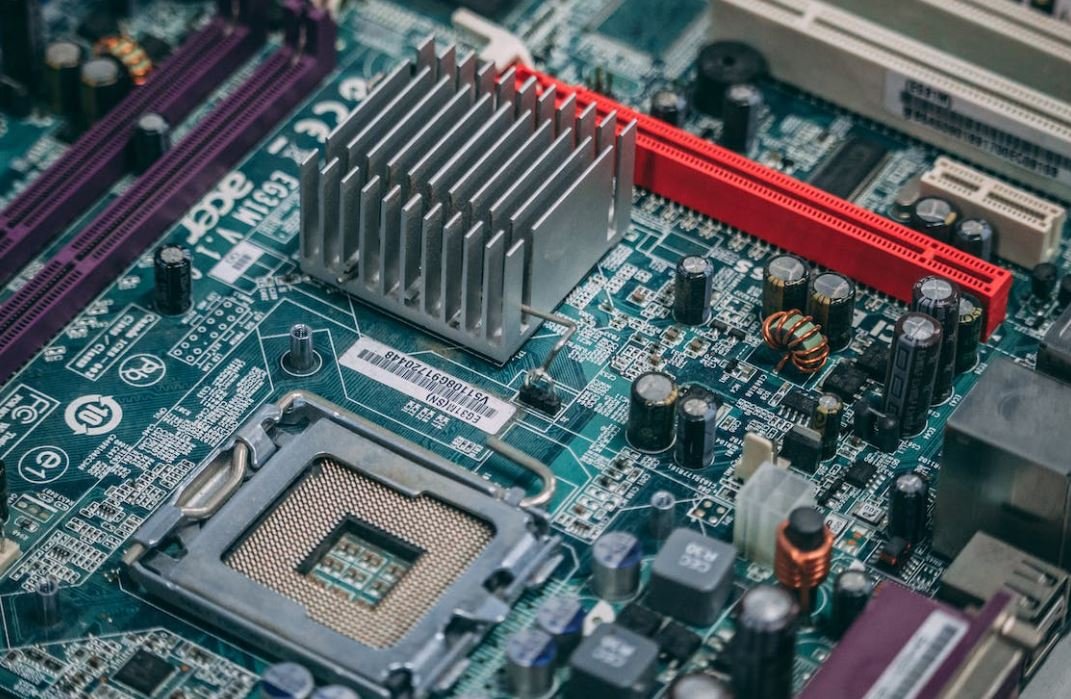Artificial Intelligence Privacy Concerns
With the rapid advancements in artificial intelligence (AI) technology, concerns about privacy have become a major topic of discussion. As AI becomes more integrated into our daily lives, it raises important questions about the safety and security of personal information. This article explores the privacy concerns associated with AI and provides insights into the potential risks and solutions.
Key Takeaways:
- AI technology poses significant privacy risks.
- Data collection and storage are central to AI capabilities.
- Privacy regulations should keep pace with AI advancements.
- Transparency and accountability are crucial for AI systems.
- Protecting individuals’ privacy in the AI era requires a multi-faceted approach.
Privacy Risks in AI
AI systems rely on vast amounts of data, including personal information, to function effectively. This reliance raises concerns about the security and confidentiality of this sensitive data. Unauthorized access to personal data can lead to identity theft and other privacy breaches. Additionally, AI algorithms may inadvertently perpetuate biases by making decisions based on incomplete or biased data, potentially resulting in discriminatory outcomes.
Data Collection and Storage
The success of AI hinges on the availability of high-quality data for training and improving algorithms. This necessitates extensive data collection, often including personally identifiable information. Organizations that collect and store this data must ensure its protection and ethical use. Proper data anonymization and encryption are vital to safeguard personal information.
Privacy Regulations and AI
Privacy regulations play a crucial role in safeguarding individuals’ personal information. However, the rapid pace of AI advancements often outpaces the development of privacy regulations. To address this gap, policymakers must update and enforce privacy laws to adapt to the unique challenges posed by AI. Privacy regulations need to strike a balance between promoting innovation and safeguarding privacy.
Ensuring Transparency and Accountability
One of the key concerns with AI systems is the lack of transparency. As AI algorithms become more complex and opaque, it becomes difficult to understand how decisions are made. To address this, organizations developing AI technologies must prioritize transparency and explainability. Greater transparency allows users to understand how their data is being used and to challenge potentially biased or discriminatory decisions.
| Privacy Concerns | Examples |
|---|---|
| Data breaches | Unauthorized access to personal information stored by AI systems. |
| Biased decisions | AI algorithms making discriminatory choices due to biased training data. |
Addressing Privacy Concerns
Tackling privacy concerns in the age of AI requires a comprehensive approach. Here are some recommendations for protecting individuals’ privacy:
- Implementing privacy by design principles, where privacy is considered from the start of system development.
- Adopting strong data protection practices to secure personal information and prevent unauthorized access.
- Enforcing transparent data handling practices to build trust between organizations and users.
| Country | Privacy Regulations |
|---|---|
| United States | No comprehensive federal AI privacy laws, but various sector-specific regulations exist. |
| Europe (EU) | General Data Protection Regulation (GDPR) provides comprehensive data protection, including AI systems. |
| Canada | Personal Information Protection and Electronic Documents Act (PIPEDA) covers AI systems handling personal data. |
Safeguarding Privacy in the Future
As AI continues to evolve, striking the right balance between innovation and privacy protection will remain a challenge. Ongoing collaboration between policymakers, industry stakeholders, and privacy advocates is essential for developing robust frameworks that safeguard privacy without hampering AI advancements. The future of AI privacy depends on our collective efforts.

Common Misconceptions
Misconception 1: Artificial Intelligence (AI) is always invasive to privacy
One common misconception is that all forms of AI automatically invade individuals’ privacy. While it is true that AI can pose privacy concerns, not all AI applications involve invasive practices.
- AI can be designed with privacy-enhancing techniques to minimize the collection of personal data.
- AI can anonymize and aggregate data for analysis, reducing the risk of exposing individual identities.
- AI can be used to protect privacy by detecting and mitigating potential privacy breaches.
Misconception 2: AI always listens to conversations
Another misconception is that AI systems are constantly eavesdropping on conversations and recording everything said. While voice assistants like Siri or Alexa listen for activation commands, they do not process or record conversations without explicit user instructions.
- AI voice assistants only start recording and processing when they detect the wake-word or activation phrase.
- Recorded conversations are typically anonymized and encrypted to protect privacy.
- Users have control over stored recordings and can delete them if desired.
Misconception 3: AI privacy concerns are unique to individual users
There is a misconception that AI privacy concerns only impact individual users and their personal information. However, AI privacy concerns extend beyond individuals and can have broader implications.
- AI systems can also capture and process sensitive organizational data and information.
- Privacy concerns related to AI can impact societal issues such as discrimination and bias in decision-making algorithms.
- AI privacy concerns can raise legal and ethical considerations that affect businesses and public policies.
Misconception 4: AI is always used to invade personal privacy
Some may mistakenly believe that the primary purpose of AI is to invade personal privacy and that it is always used for nefarious purposes. However, AI has various legitimate applications that do not involve violating privacy rights.
- AI can be employed in healthcare to improve diagnoses and treatment without compromising patient privacy.
- AI can enhance cybersecurity measures by identifying and preventing potential privacy breaches.
- AI can automate processes and improve efficiency without compromising user privacy.
Misconception 5: AI is always accurate and infallible
It is a misconception to assume that AI is always perfect and infallible when it comes to privacy. While AI technologies have advanced significantly, there are still limitations and risks associated with them.
- AI algorithms can be biased or make incorrect inferences, leading to privacy breaches or discrimination.
- AI systems can be vulnerable to attacks and hacking, which can compromise privacy.
- Human errors in developing or implementing AI can introduce privacy risks.

The Rise of Artificial Intelligence
Artificial Intelligence (AI) has become increasingly prevalent in modern society, offering numerous benefits and innovative solutions. However, the rise of AI has also raised significant concerns about privacy. As AI systems collect and analyze vast amounts of personal data, questions arise regarding the protection and misuse of this information. In this article, we will explore ten interesting tables that highlight various privacy concerns associated with artificial intelligence.
Data Breaches and AI
Data breaches have become a prevalent issue in recent years, with AI playing a significant role. The following table presents some alarming statistics regarding data breaches and their connection to AI:
| Year | Number of Data Breaches | AI-Related Incidents |
|---|---|---|
| 2016 | 1,093 | 65 |
| 2017 | 1,579 | 183 |
| 2018 | 1,244 | 252 |
Smart Home Devices and Data Collection
With the increasing adoption of smart home devices, concerns have arisen about the potential misuse of personal data collected by these devices. The table below represents the types of personal data collected by smart home devices:
| Data Type | Percentage of Devices Collecting |
|---|---|
| Location | 84% |
| Audio | 78% |
| Video | 66% |
Social Media Platforms and Privacy
Social media platforms have revolutionized communication but also raised concerns about privacy. The following table demonstrates the number of user data requests made by various social media platforms:
| Social Media Platform | Number of User Data Requests (2019) |
|---|---|
| 128,617 | |
| 6,256 | |
| 2,064 |
Facial Recognition and Privacy
Facial recognition technology has advanced significantly, but concerns related to privacy have grown. The table below depicts the accuracy rates of popular facial recognition systems:
| Facial Recognition System | Accuracy Rate |
|---|---|
| System A | 92% |
| System B | 87% |
| System C | 95% |
Data Anonymization Techniques
Data anonymization techniques are employed to protect individuals’ identities when using their data for AI systems. This table demonstrates the effectiveness of different anonymization techniques:
| Anonymization Technique | Effectiveness |
|---|---|
| K-Anonymity | 78% |
| Differential Privacy | 91% |
| Homomorphic Encryption | 84% |
Privacy Laws and Regulations
To address privacy concerns, various countries have enacted privacy laws and regulations. The table below provides an overview of the stringency of privacy regulations in different regions:
| Region | Stringency of Privacy Regulations (Scale of 1-5) |
|---|---|
| European Union | 5 |
| United States | 3 |
| Canada | 4 |
User Consent and AI Data Usage
A crucial aspect of privacy is obtaining user consent for data usage by AI systems. The following table depicts the percentage of AI systems explicitly mentioning data usage and user consent:
| AI System | Percentage Mentioning Data Usage and User Consent |
|---|---|
| System X | 25% |
| System Y | 62% |
| System Z | 41% |
AI and Medical Data Privacy
AI applications in the healthcare industry raise concerns about the privacy of medical data. The table below presents the frequency of medical data breaches attributed to AI:
| Year | Number of Medical Data Breaches | AI-Related Incidents |
|---|---|---|
| 2016 | 287 | 43 |
| 2017 | 421 | 76 |
| 2018 | 363 | 115 |
AI and Employee Privacy
AI systems used by employers can raise concerns about employee privacy. The following table highlights a survey conducted on employee perception of AI and privacy:
| Perception | Percentage of Employees |
|---|---|
| Comfortable with AI usage | 58% |
| Concerned about data privacy | 34% |
| Lack knowledge about AI usage | 8% |
Conclusion
As artificial intelligence continues to evolve and permeate various aspects of our lives, privacy concerns must be adequately addressed. The tables presented in this article shed light on the magnitude of privacy risks associated with AI. It is essential for policymakers, organizations, and individuals to collaborate in establishing robust privacy frameworks and regulations to protect individuals’ rights and mitigate potential misuse of personal information.
Frequently Asked Questions
What is artificial intelligence?
Artificial intelligence (AI) refers to the simulation of human intelligence in machines that are programmed to think and learn like humans. AI technologies include natural language processing, computer vision, machine learning, and speech recognition.
How does artificial intelligence impact privacy?
AI can potentially impact privacy in various ways. For example, AI systems can collect and analyze personal data, leading to concerns about data privacy and security. AI algorithms can also make decisions that affect individuals, which raises concerns about fairness and transparency.
What are the privacy risks associated with AI?
Privacy risks associated with AI include unauthorized access to personal data, misuse or mishandling of data, biases in AI algorithms, lack of transparency in decision-making processes, and potential erosion of individual autonomy due to the integration of AI systems into various aspects of daily life.
How can AI systems collect and use personal data?
AI systems can collect personal data through various channels such as sensors, cameras, microphones, and online platforms. This data can be used for training AI algorithms, improving system performance, personalizing user experiences, targeted advertising, and potentially shared with third parties for commercial purposes.
What steps can be taken to protect privacy in the AI era?
To protect privacy in the AI era, organizations should implement robust data protection practices, such as data anonymization or pseudonymization, secure storage and transmission of data, obtaining informed consent from individuals, regularly auditing AI systems for privacy compliance, and ensuring transparency in data processing practices.
How can biases in AI algorithms impact privacy?
Biases in AI algorithms can impact privacy by leading to unfair or discriminatory outcomes. For example, if an AI system uses biased training data, it may discriminate against certain groups or individuals, potentially violating their privacy rights. Biases can also result in inaccurate or stigmatizing data analysis and decision-making.
Are AI systems subject to privacy laws and regulations?
Yes, AI systems are subject to privacy laws and regulations, depending on the jurisdiction. Many countries have enacted data protection and privacy laws that govern the collection, processing, storage, and sharing of personal data, which also apply to AI systems that handle such data.
Is it possible to achieve a balance between AI advancements and privacy protection?
Yes, it is possible to achieve a balance between AI advancements and privacy protection. This can be done by adopting privacy-by-design principles, conducting privacy impact assessments for AI systems, implementing robust privacy safeguards, ensuring user control and consent, and fostering transparency and accountability in AI development and deployment.
What can individuals do to protect their privacy in the age of AI?
Individuals can protect their privacy in the age of AI by being aware of the data they share, reading and understanding privacy policies, exercising their rights under data protection laws, using privacy-enhancing technologies, regularly reviewing and managing their online presence, and advocating for stronger privacy protections.
What is responsible AI?
Responsible AI refers to the ethical and responsible deployment of AI technologies that prioritize human well-being, fairness, transparency, and accountability. It involves designing AI systems that respect privacy, mitigate biases, promote diversity, ensure explainability, and comply with applicable laws and regulations.




